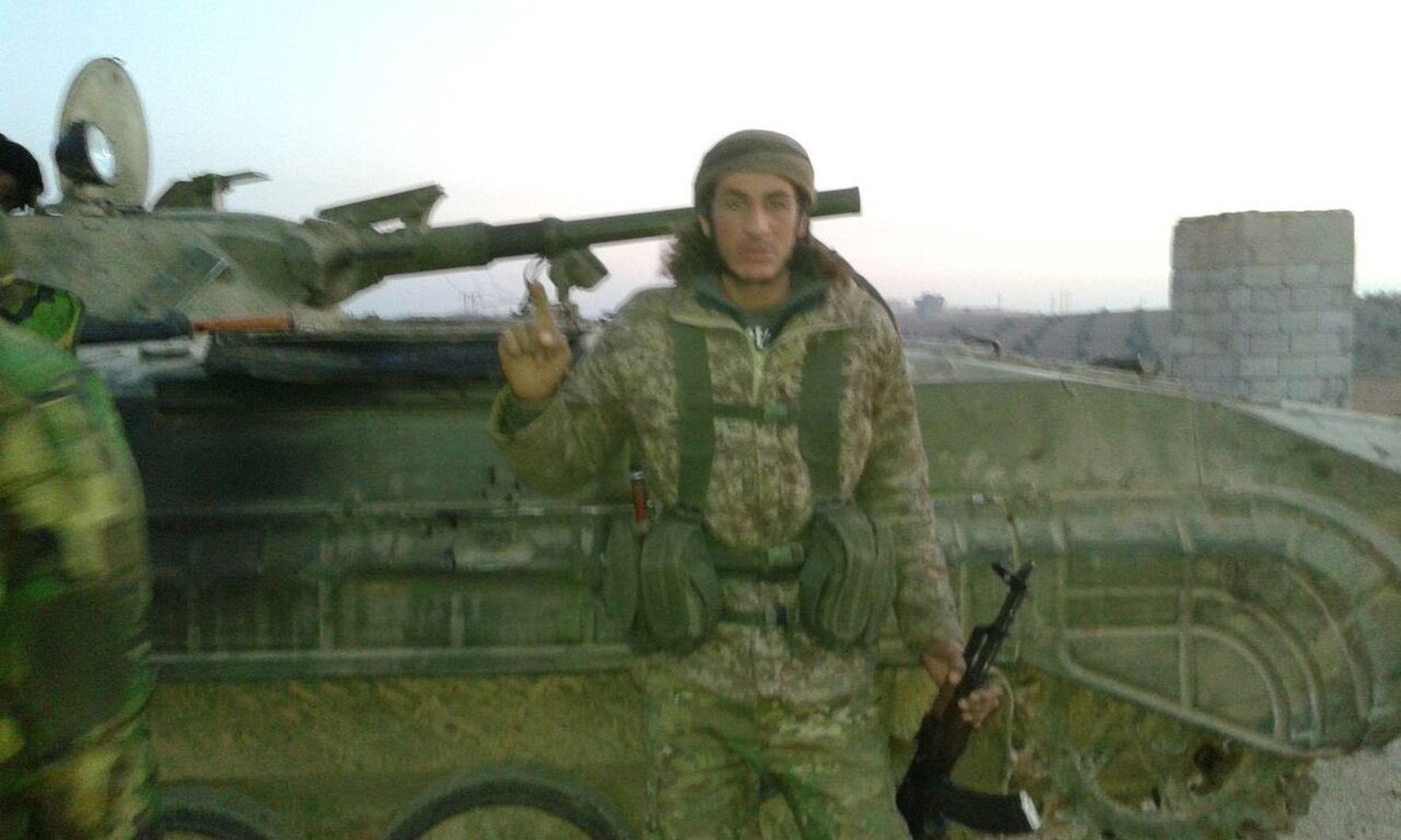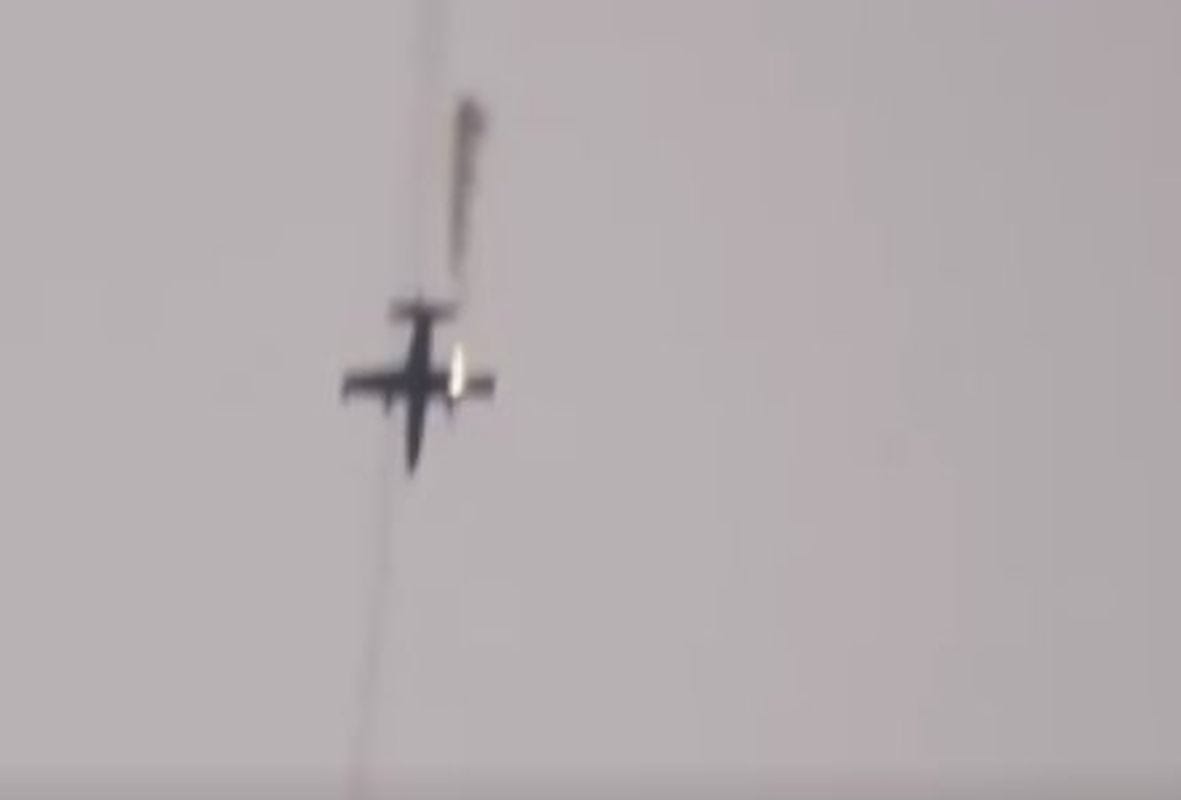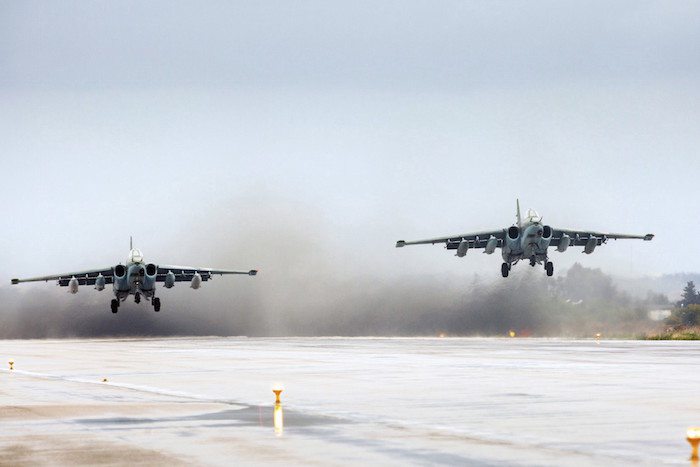Moscow needs to own its mistakes
On the morning of Feb. 9, 2017, a single Russian fighter-bomber released a stick of unguided dumb bombs on a house in Al Ghuz, a village south of Al Bab in northern Syria. The blast killed three Turkish army soldiers.
According to Kremlin spokesman Dmitry Peskov, there was no doubt who was to blame — and it wasn’t Russia. “The situation is obvious, unfortunately,” Peskov said. “Our military, while launching strikes on terrorists, followed coordinates that were given to us by our Turkish partners.”
While supporters of the regime of Syrian president Bashar Al Assad have cheered the errant attack, many Turks are outraged. This is of particular importance considering that Turkey, after years of ignoring Islamic State’s presence on its southern border, has found itself compelled to fight ISIS — and in close cooperation with some pretty dubious partners. Namely, Russia, Iran and the Syrian regime itself.
The accidental bombing risked undermining Turkey’s commitment to war on ISIS — and exposed the contradictions within Russia’s own messy intervention in the six-year-old Syrian civil war. Moscow must accept that it, and not its allies, is to blame for the February tragedy.

A report by the Russian news agency Vedomosti offered a very simple explanation for what happened in Al Hus. According to that account, early on the morning of Feb. 9, Turkish-backed units of the Free Syrian Army attacked the left flank of the Quwwat Nimr — the “Tiger Force,” militia answering to the notorious Syrian air force intelligence service — as the Quwwat Nirm was advancing along the M4 road in direction of Al Bab.
The M4 road was the established separation line between Syrian and Turkish forces and their respective militias.
Believing it was under attack by ISIS, the Quwwat Nimr requested air support. Vedomosti further explained that the Russian military knew nothing about any Turkish army units in the area and thus dispatched an air strike.
By the time the Russian planes arrived, the situation on the battlefield had changed. After losing several troops and at least one BMP-1 armored vehicle, the regime militia withdrew farther south. Thus the Free Syrian Army continued its advance and reached the outskirts of Al Bab. A Turkish army unit apparently subsequently entered Al Ghuz in the FSA’s wake — only to be hit by Russian bombs.

Vedomosti’s report underscores several issues that should be of serious concern to almost everyone involved. The first issue is that Kremlin spokesman Peskov lied when he said that the “Russian military relied on coordinates provided by its Turkish partners” and that “Turkish servicemen should not have been in that location.”
That the Russian government led in a situation of this kind is nothing new, of course. Still, it is a useful reminder of just how reliable Russia is as a wartime partner.
The second issue is that Al Ghuz has been under the control of the Turkish army and the FSA since at least Feb. 1, 2017. According to sources within the Turkish military who spoke on condition of anonymity, the Russian military attaché in Ankara was informed of the Turkish military presence in this village the same day the Turks moved in.
Furthermore, on Feb. 8, the Turks informed the Russians of their advance on the village of Abu Zindin on the M4 road, a few kilometers south of Al Ghuz. It’s clear that the Turkish military informed the Russians about its presence in both places.
On Feb. 9, the Russians ignored this information. Officers working at the Russian operations center at Hmemmem air base in western Syria either failed to compare coordinates provided by Quwwat Nimr with the data provided by the Turkish military, or they preferred to trust the Syrians instead of the Turks.
Either way, they made the same kind of mistake they’ve been making since Russia first intervened in Syria in the fall of 2015. Poor planning on Russia’s part resulted in the loss of a Russian air force Su-24 to Turkish interceptors on Nov. 24, 2015 and led to around two dozen errant air strikes on positions controlled by the Al Assad regime and the Iranian Revolutionary Guard Corps.
The third issue is that one of the top regime militias clearly ignored the Russo-Turkish alliance. Owing to its direct subordination to the Syrian air force and its links to the “special operations room” in Aleppo — i.e. the joint Russo-Iranian-Syrian headquarters for north-central Syria — the Quwwat Nimr stays well-informed of the situation on the battlefield.
It certainly knew who held Al Ghuz and Abu Zindin. Nevertheless, it attacked positions held by the Turkish-supported Free Syrian Army and thus provoked the battle that lead to the Russian air strike on a Turkish army position.

Quwwat Nimr behaved in precisely the same way IRGC-controlled units did in the Aleppo area in December 2016, when they ignored the Russia- and Turkey-brokered ceasefire and evacuation of remaining Syrian insurgents and civilians from the besieged city.
The fourth issue is that of Quwwat Nimr calling for Russian air support instead of requesting assistance from the Syrian Arab Air Force. This is especially unusual considering that the SyAAF is often involved in air attacks on ISIS in this region of Syria. On Nov. 24, 2016 — in a kind of preview of the current controversy — SyAAF L-39s conducted two air strikes on Turkish army positions west of Al Bab, killing three Turkish soldiers.
Instead of blaming Turks, the Russians should finally accept the fact that their war aims are not the same as those of their supposed allies in Damascus and Tehran — and that they are not in a position to exercise firm control over regime military forces. Moscow should accept that its top political and military commanders are, contrary to its own claims, anything but infallible.
Having rescued Al Assad and his regime and allies from likely defeat, Russia now owns the war in Syria. And when a regime militia goes rogue and calls in an air strike that Russian officers poorly plan, it’s Russia’s fault — no one else’s. The blood of those dead Turks is on the Russians’ hands.

